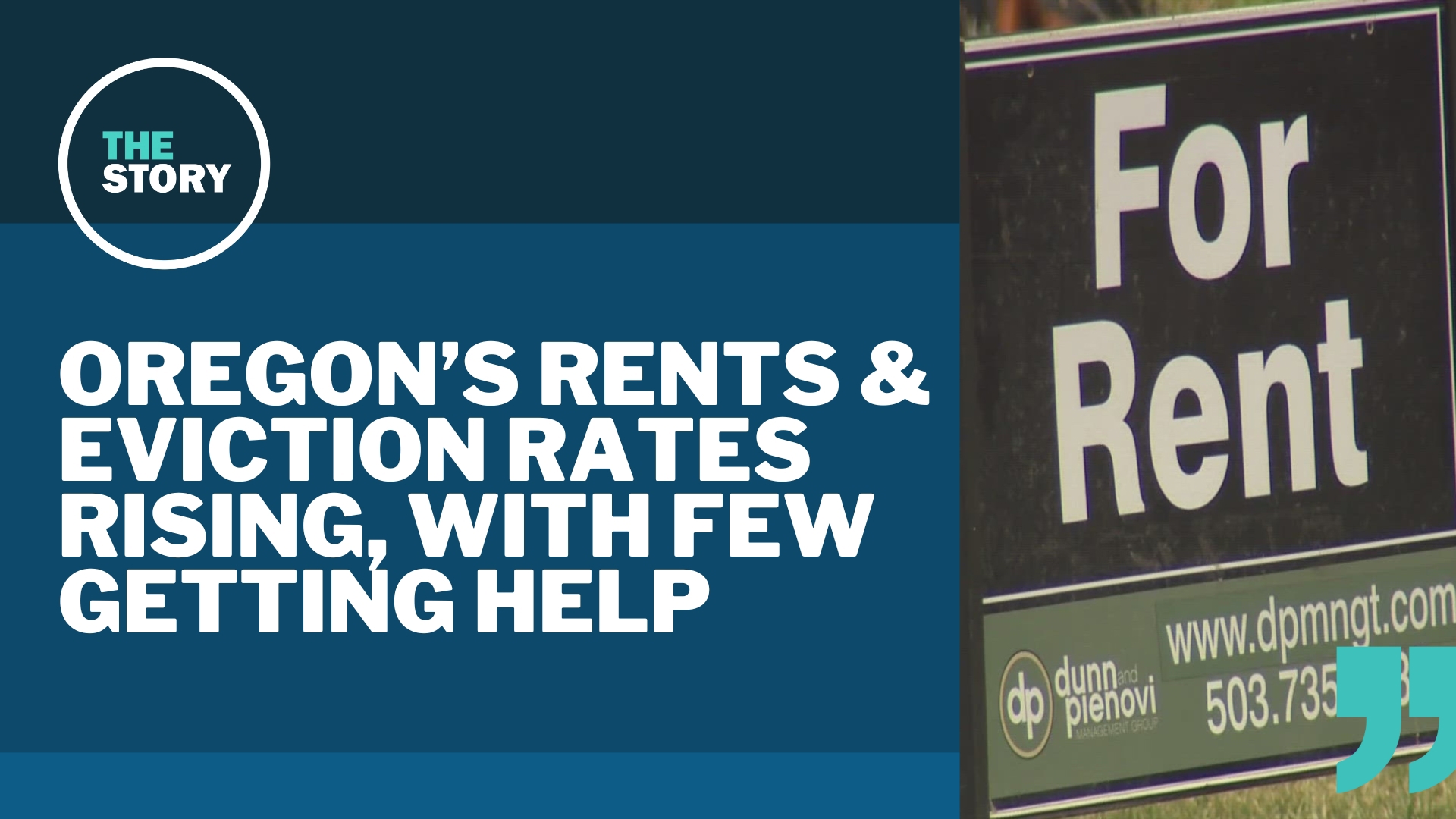PORTLAND, Ore. — The state of housing in Multnomah County is a bleak one. It's a common refrain, but taking a look at rent prices and evictions makes the forecast gloomier.
The latest rent report from Apartment List finds the overall median rent in the city of Portland comes to $1,566 — about $1,400 for a one-bedroom apartment and nearly $1,700 for a two-bedroom. That puts the Rose City at No. 40 among the nation’s largest 100 cities.
For comparison, No. 1 is Irvine, Calif., at nearly $3,000 a month for overall median rent. Closer to our region, Seattle is No. 16 with a median of about $2,000 a month, and Spokane, Wash., is No. 81 at close to $1,200. Across the country, the average is around $1,400.
Looking over the past 12 months here at home, rent growth is actually down 1.7% compared to May 2023. At the same time, data from Evicted in Oregon shows an increase in the number of eviction cases over the last year in Multnomah County.
In April 2023, there were nearly 500 — in total, 475 — eviction cases filed in court.
Fast forward to April of this year, the number reached nearly 1,000. That’s close to half of all the cases filed in Oregon’s circuit courts that month, which makes sense, as Multnomah County is the state’s most populous.
By that same data, more than half of landlords in the county, 56%, are represented by a lawyer. A wide majority, 82%, are represented by someone, be it a lawyer or some other kind of legal agent.
Let's compare that to only 9% of tenants in the county.
PSU study examines eviction effects
That is part of what researchers at Portland State University (PSU) looked into back in 2022 and 2023. In a report published earlier this year, they talked to 68 Multnomah County tenants in a series of focus groups about how they responded to getting an eviction notice.
While their focus wasn't specifically about the rise in rent, PSU's Natalie Cholula said the topic definitely came up.
"In our report, we do talk about one mother in particular who mentions that her eviction really came from a rental increase. She wasn't able to meet the new rent increase and it resulted in long-term, almost cascading consequences — she had to get multiple jobs; she had to find accommodations for her kids because they couldn't ... she couldn't find somewhere where everybody could stay in one place."
"And then again, there are other tenants who mentioned that it was the rent increase that really led to the eviction notice that they received," she reiterated.
And with that eviction notice, researchers say tenants developed anxiety, depression and sought medical assistance.
What many did not seek in PSU's study was any of the eviction support services available, such as rent payment assistance or legal representation. Just 29 of the 68 people — fewer than half — tried to get help. Some within that group asked for resources but were not connected with services.
So, ultimately, only a quarter of the tenants who tried to get help actually got any.
"As our report shows, it's really difficult for the tenants to access these forms of support, and some of it is ... like, the tenants will reach out to these organizations, and the organizations don't contact them back," Cholula said.
"I think the other thing, though ... to be in the middle of an eviction and worry about the possibility of having to be displaced and then while also trying to look for resources ... just puts tenants in a really difficult position to have to do multiple things at once again."
Cholula said add things like language barriers, discrimination and an overall lack of resources by the groups trying to help tenants, you have a system where people are not aware of the ways they can fight an eviction notice.
And so more than half of those in the focus group, 58%, said they vacated their home to avoid trouble with the legal system or their landlord.
Recommendations without much recourse
Cholula told KGW from the outset that their goal with this research is to find avenues to end homelessness, so with their report, the researchers made some recommendations.
One of the recommendations was to create programs that reach out to tenants before they make a desperate decision. A rent relief program in Texas claimed success by sending out mailers to low-income households statewide that were translated in multiple languages.
Other recommendations include creating eviction navigation programs, where tenants seeking help can talk to a real person, as well as establishing a tenant right to counsel to guarantee legal representation for tenants facing eviction.
The latter idea, however, was rejected by Multnomah County voters last year through a ballot measure; Measure 26-238 would have levied a 0.75 cent capital gains tax to pay lawyers to represent tenants facing eviction, but it was roundly rejected with by just over 80% of county voters.
So, the issue remains: Multnomah County has the highest rate of "renter-occupied housing" in the state at 46%, which also means the county has the most eviction cases across Oregon.

